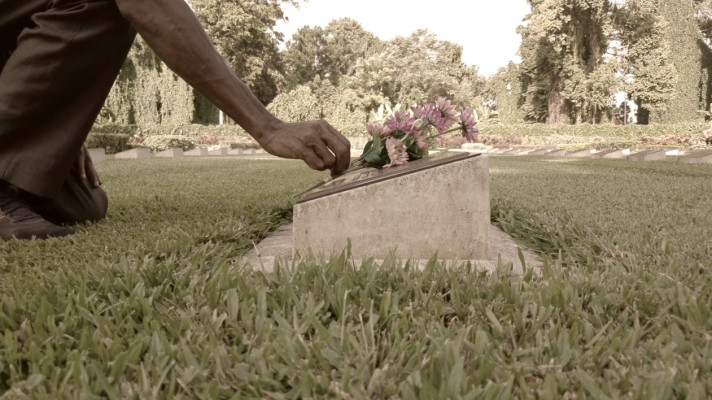Read Job 3:11–13; Psalm 115:17; Psalm 146:4; and Ecclesiastes 9:5, 10. What can we learn from these passages about the condition of human beings at death?
Some Bible commentators argue that these passages (Job 3:11–13; Ps. 115:17; Ps. 146:4; Eccles. 9:5, 10), written in poetic language, cannot be used to define the condition of human beings at death. It is true that sometimes poetry can be ambiguous and easily misunderstood, but this is not the case with these verses. Their language is clear, and their concepts are in full harmony with the overall Old Testament teachings on the subject.
First, in Job 3, the patriarch deplores his own birth because of all the suffering. (In our more dire moments, who hasn’t wished that he or she had never been born?) He recognizes that if he had died at his birth, he would have remained asleep and at rest (Job 3:11, 13).
Psalm 115 defines the location where the dead are kept as a place of silence, because “the dead do not praise the Lord” (Ps. 115:17, NKJV). This hardly sounds as if the dead, the faithful (and thankful) dead, are in heaven worshiping God.
According to Psalm 146, the mental activities of the individual cease with death: “His spirit departs, he returns to the earth; on that very day his plans perish” (Ps. 146:4, NASB). This is a perfect biblical depiction of what happens at death.
Ecclesiastes 9 adds that “the dead know nothing” and in the grave “there is no work or device or knowledge or wisdom” (Eccles. 9:5, 10, NKJV). These statements confirm the biblical teaching that the dead are unconscious.
The biblical teaching of unconsciousness in death should not generate any panic in Christians. First of all, there is no everlasting burning hell or temporary purgatory waiting for those who die unsaved. Second, there is an amazing reward waiting for those who die in Christ. No wonder that “to the believer, death is but a small matter. . . . To the Christian, death is but a sleep, a moment of silence and darkness. The life is hid with Christ in God, and ‘when Christ, who is our life, shall appear, then shall ye also appear with Him in glory.’ John 8:51, 52; Col. 3:4.”—Ellen G. White, The Desire of Ages, p. 787.
Think about the dead in Christ. They close their eyes in death and, whether in the grave 1,500 years or five months, it’s all the same to them. The next thing they know is the return of Christ. How, then, might one argue that, in one sense, the dead have it better than we, the living, do?
Supplemental Notes
“But, mother,” said I, “do you really believe that the soul sleeps in the grave until the resurrection? Do you think that the Christian, when he dies, does not go immediately to heaven, nor the sinner to hell?”
She answered: “The Bible gives us no proof that there is an eternally burning hell. If there is such a place, it should be mentioned in the Sacred Book.” . . .
It was some months after this conversation before I heard anything further concerning this doctrine; but during this time my mind had been much exercised upon the subject. When I heard it preached, I believed it to be the truth. From the time that light in regard to the sleep of the dead dawned upon my mind, the mystery that had enshrouded the resurrection vanished, and the great event itself assumed a new and sublime importance. . . . If at death the soul entered upon eternal happiness or misery, where was the need of a resurrection of the poor moldering body?
But this new and beautiful faith taught me the reason why inspired writers had dwelt so much upon the resurrection of the body; it was because the entire being was slumbering in the grave. I could now clearly perceive the fallacy of our former position on this question.—Life Sketches of Ellen G. White, pp. 49, 50.
Christ became one with humanity, that humanity might become one in spirit and life with Him. By virtue of this union in obedience to the Word of God, His life becomes their life. He says to the penitent, “I am the resurrection, and the life” (John 11:25). Death is looked upon by Christ as sleep—silence, darkness, sleep. He speaks of it as if it were of little moment. “Whosoever liveth and believeth in me,” He says, “shall never die” (John 11:26). “If a man keep my saying, he shall never taste of death” (John 8:52). “He shall never see death” (John 8:51). And to the believing one, death is but a small matter. With him to die is but to sleep. “Them also which sleep in Jesus will God bring with him” (1 Thessalonians 4:14).—Selected Messages, book 1, p. 302.
Man was originally endowed with noble powers and a well-balanced mind. He was perfect in his being, and in harmony with God. His thoughts were pure, his aims holy. But through disobedience, his powers were perverted, and selfishness took the place of love. His nature became so weakened through transgression that it was impossible for him, in his own strength, to resist the power of evil. He was made captive by Satan, and would have remained so forever had not God specially interposed. It was the tempter’s purpose to thwart the divine plan in man’s creation, and fill the earth with woe and desolation. And he would point to all this evil as the result of God’s work in creating man.—Steps to Christ, p. 17.




